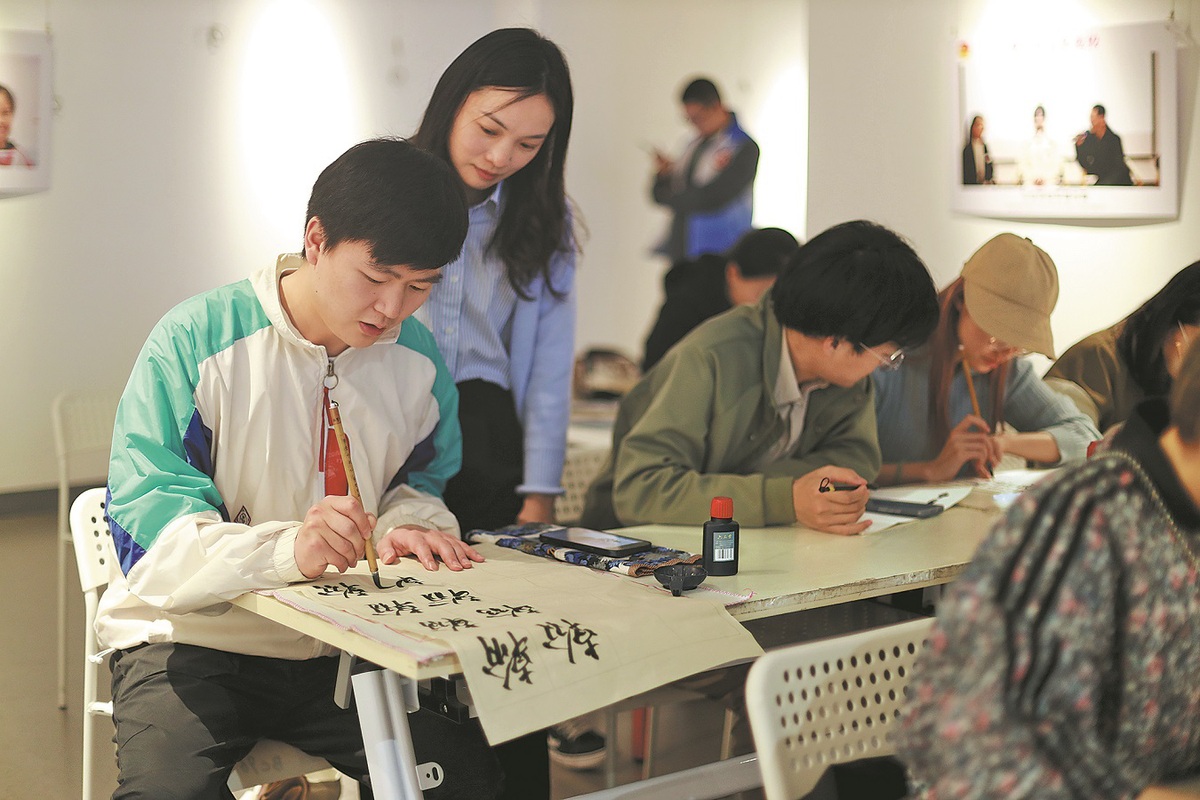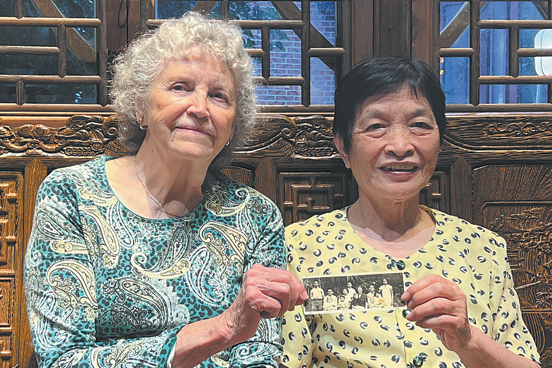Volunteer teacher passes on passion for calligraphy
By Tan Yingzi and Deng Rui | China Daily | Updated: 2024-06-03 09:37

Ou Dongsheng is living out his dream of promoting traditional Chinese culture by volunteering as a calligraphy teacher at a night school in Chongqing.
A former student at the school, Ou now teaches calligraphy to about 20 students one evening a week at Beicang Cultural and Creative Park in Jiangbei district.
The slender, sporty 30-year-old stands on a chair to adjust a spotlight, shining onto an elegant scroll displaying some of his "writing pals'" work.
Ou said he calls his students "pals" because unlike a standard teaching arrangement, his classes are less formal and have a diverse range of students, from those in their 20s to almost 60.
"I enjoy the vibe here, which I think is soulfully chilled," he said.
He recalled when the night school opened in August last year, his friend Gao Xinquan, the first voluntary teacher at the school, invited Ou to join his guitar classes.
Gao's enthusiasm for community volunteer work inspired Ou. When his guitar course ended, he decided to take up the mantle and start teaching calligraphy at the school.
From his perspective, the night school combines social functions and vocational learning. "Being able to interact with people driven by the same interest and passion is an absolute joy," he said.
During his 90-minute class, the young but steady teacher paces around the room, coaching the pals with hands-on postures and techniques, or giving feedback.
Ou said he was first introduced to Chinese calligraphy at the age of 6 and has kept a keen interest in the art ever since.
Born in the southwestern municipality in 1993, Ou said his childhood had been influenced by American movies and Japanese animations. As he grew up, his eagerness to promote his own culture became increasingly clear.
Ou became a professional soccer goalkeeper after college, but an unexpected knee injury cut his career short. In 2017, he became a calligraphy teacher.
Ou said at the beginning of each semester, which consisted of 10 courses, he would introduce a brief history of Chinese calligraphy by listing a vast collection of masterpieces of famous calligraphers from multiple dynasties, such as Zhao Mengfu and Mi Fu in typical xingshu (cursive hand), and Ouyang Xun and Yan Zhenqing in kaishu, or regular script.
Then he helps with their aesthetic awareness — appreciating the artworks' ink color differences, line thickness and character sizes — and finally guiding them to find their favorite style.
"Chinese calligraphy is essentially a set of movements — leaving line traces on paper passed down from ancient times. All these movements — seemingly random, reveal certain patterns."
The young man has a unique light touch in his own calligraphy.
"Similar to exercising and sports, we need to form muscle memories by utilizing hand-eye coordination and delivering spontaneous combinations of patterns," Ou said.
"Ou teaches very well and carefully, and he influences us with his years of profound thinking on calligraphy," said Chen Xia, one of Ou's students.
She is studying her third course with Ou and wants to use calligraphy skills in her future Chinese painting works.
"I will teach as long as I can to enable more people to experience and appreciate the charm of traditional calligraphy," he said.
























